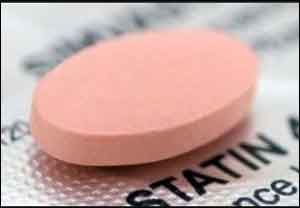- Home
- Editorial
- News
- Practice Guidelines
- Anesthesiology Guidelines
- Cancer Guidelines
- Cardiac Sciences Guidelines
- Critical Care Guidelines
- Dentistry Guidelines
- Dermatology Guidelines
- Diabetes and Endo Guidelines
- Diagnostics Guidelines
- ENT Guidelines
- Featured Practice Guidelines
- Gastroenterology Guidelines
- Geriatrics Guidelines
- Medicine Guidelines
- Nephrology Guidelines
- Neurosciences Guidelines
- Obs and Gynae Guidelines
- Ophthalmology Guidelines
- Orthopaedics Guidelines
- Paediatrics Guidelines
- Psychiatry Guidelines
- Pulmonology Guidelines
- Radiology Guidelines
- Surgery Guidelines
- Urology Guidelines
Statins for primary CVD prevention has uncertain benefits, potential harms: BMJ

Ireland: Statins have been in use in people with established cardiovascular disease for decades now. But uncertainty exists on whether the benefits of statins outweigh the harms when used for primary prevention in people without cardiovascular disease.
Researchers in a recent study in The BMJ journal found the benefits of stains for people without heart disease (known as primary prevention) to be small and uncertain. Instead, they found some potential harms associated with statin use in such patients.
Paula Byrne, National University of Ireland, Galway, Ireland, and colleagues explained the uncertainties about the benefits of statins, particularly in people at low risk of cardiovascular disease, and the need for better data to help shared decision making. They drew on the findings of their three recent peer-reviewed papers on statins for primary prevention.
Based on the results, they argued that statins in this context (for use in primary prevention) "may be an example of low-value care and, in some cases, represent a waste of healthcare resources."
They say greater awareness of the gaps in the evidence could help doctors and patients make more informed decisions, particularly for people at low risk of heart disease for whom the balance of benefits and harms of statins is still unclear.
Clinical guidelines have increased the number of healthy people who could be eligible for statins, and in many countries, the majority of those taking statins do so for primary prevention.
The researchers examined the effects of guideline changes on cardiovascular disease prevention in older people in Ireland from 1987 to 2016 and found that the proportion of over 50s who would have been eligible for statins increased from 8% based on the 1987 guidelines to 61% with the 2016 guidelines.
This meant that increasingly lower risk people became eligible for treatment. The number of people that would need to be treated to prevent one major cardiovascular event also went up substantially, from 40 people at the lowest risk in the 1987 guidelines to 400 at the lowest risk in the 2016 guidelines.
The researchers also examined the benefits of statins using only primary prevention data for people taking statins for 1-5 years with an average age of 62-69 years.
- They found significant reductions in death from any cause, vascular deaths, and major coronary or vascular events.
- When the data were analysed according to the baseline risk of developing cardiovascular disease, most outcomes were not statistically significant, "raising uncertainty about the benefits of statins for primary prevention."
- The analysis suggested that none of those classified as a low or moderate risk in primary prevention would reach acceptable levels of risk reduction ("absolute benefit") to justify taking a daily statin.
Given the increased number of people taking statins and the dilution of benefit due to lower risk profiles of those being treated, "we need to assess and understand the evidence underlying these trends," say the researchers. Yet despite calls to make access to full clinical trial data a legal, regulatory, or ethical requirement, key statin trial data remain unavailable for an independent analysis.
As such, the authors argue that the prescription, use, and reimbursement of statins in primary prevention "warrants more careful consideration."
More generally, the evidence on statin use for primary prevention suggests that the concepts of overuse and low-value care "should become integral to policymaking and resource allocation decisions," they conclude.
More Information: "Statins for primary prevention of cardiovascular disease" published in The BMJ journal.
DOI: https://doi.org/10.1136/bmj.l5674
Journal Information: the BMJ

Disclaimer: This site is primarily intended for healthcare professionals. Any content/information on this website does not replace the advice of medical and/or health professionals and should not be construed as medical/diagnostic advice/endorsement or prescription. Use of this site is subject to our terms of use, privacy policy, advertisement policy. © 2020 Minerva Medical Treatment Pvt Ltd